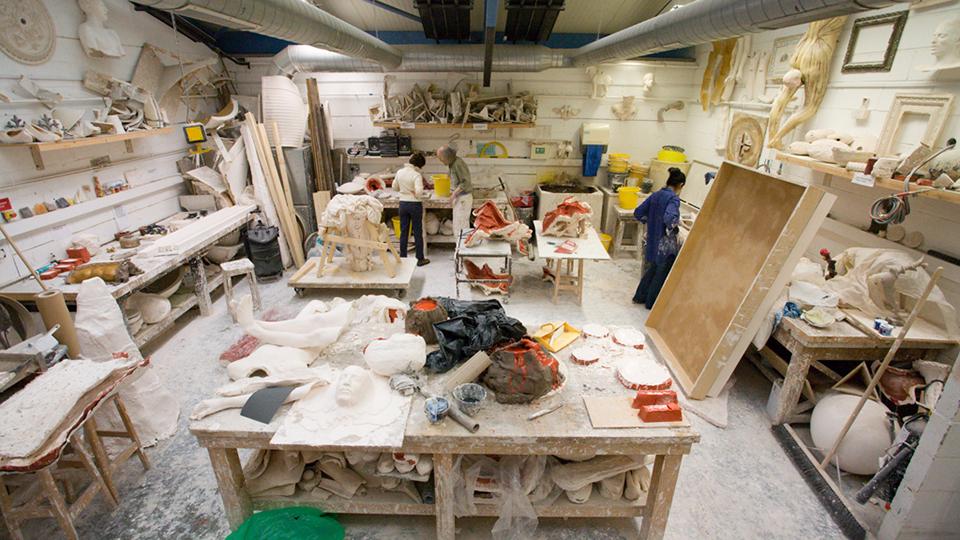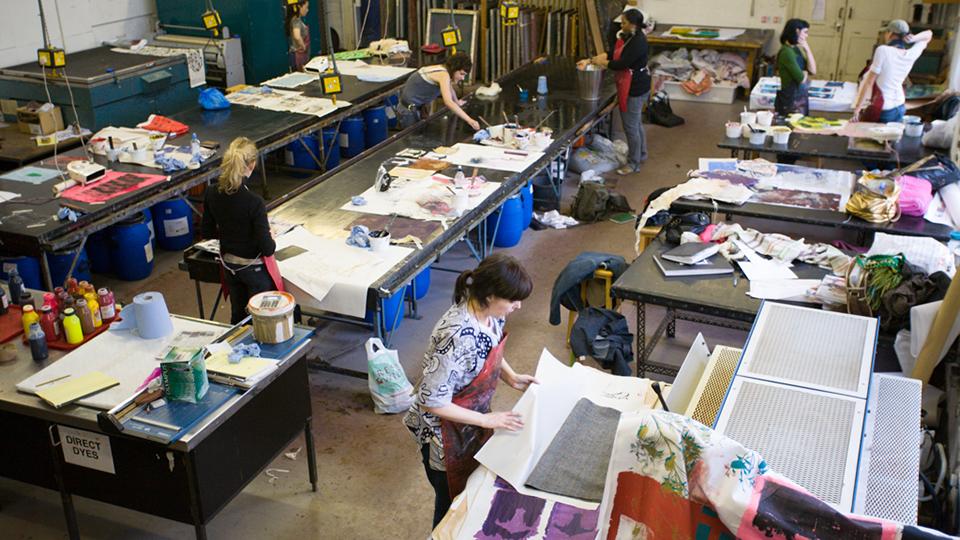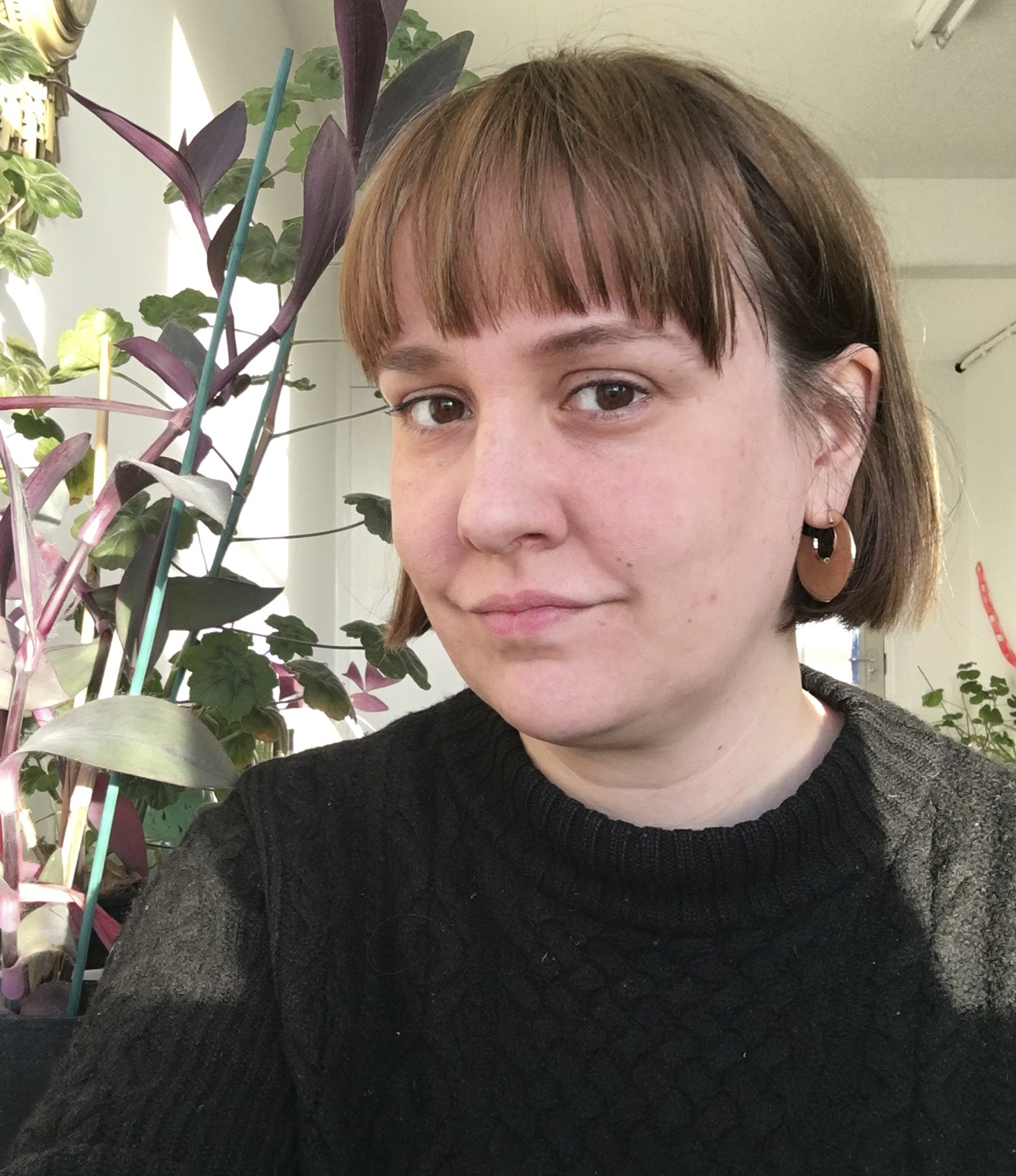BA (Hons)
Fine Art
Make and study contemporary art in a dynamic, critical and interdisciplinary environment.
Content navigation menu
Why study BA Fine Art at Goldsmiths
- This degree will equip you with creative, interpretive, critical and analytical skills, so that you can participate in and contribute to the expanding field of contemporary art.
- You'll make and study contemporary art in a dynamic, critical and interdisciplinary environment.
- We'll equip you with the skills that will help you develop independent thought and confidence in your practice, as well as transferable skills suitable for employment in the creative industries.
- You'll have your own studio space from day one, and will have access to excellent facilities including specialist art practice areas.
- All staff on the programme are practising artists, curators and writers, here to respond to the work that you make and to help you understand how it contributes to – and challenges – the critical debates that exist in the study area and beyond.
- Since 1990, former Goldsmiths students have been nominated for the Turner Prize more than 30 times, and have won the prize on 8 occasions.
Contact the department
If you have specific questions about the degree, contact Adham Faramawy (Home/EU applicants) or Lucy Clout (international applicants).
UCAS code
W190
Length
3 years full-time
Fees
Home - full-time: £9250
International - full-time: £27500
Department
Please note: This programme is closed for applications for 2024 entry.
What you'll study
The programme has two elements:
- Studio practice (75% of the course)
- Critical studies (25% of the course)
Click on the tabs to find out more about each element.
Teaching style
This programme is taught through intensive studio and research art practice, tutorials and mixed-year studio practice presentations. You'll also attend lectures and seminars where you'll hear about ideas and concepts related to specific topics, and where you'll be encouraged to discuss and debate the issues raised.
You'll be allocated a studio space that will be the focal point of your activities. Students from all three levels share the studio spaces, providing valuable peer support. You will determine the nature of your practice and, with guidance from the tutorial staff, be encouraged to work in any medium that you choose.
How you'll be assessed
Studio practice coursework is continuously assessed through individual tutorials and group seminars. This is complemented by studio presentations at Year 1, viva voce at Year 2, and a final exhibition at Year 3. Critical Studies is assessed through essays (Years 1 and 2) and a dissertation (Year 3).
Watch videos about your course
Degree Shows
You will work towards a final-year exhibition, which forms part of Goldsmiths' famous annual Degree Shows. These events celebrate the best creative work from students, and are frequently visited by top names in the art world.
Facilities
Our spectacular Ben Pimlott Building provides purpose-built teaching space on campus, including some of the art studios, lecture theatres, and digital media practice areas. The studios benefit from generous floor-to-ceiling windows. The department provides space for:
- Art studios
- Performance work
- Installations
- Temporary projects and exhibitions
There are also a range of art practice areas for:
- 3D printing
- Casting
- Constructed textiles
- Fine art print
- Graphics and time-based media
- Metal
- Photography and moving image capture
- Stitch and fabric
- Print and dye
- Wood
- Ceramics
You also have access to Goldsmiths-wide facilities.

You'll be able to get to grips with art practice areas including casting, metal, print and dye, and fine art print.

The degree will support your development and creativity, and help you acquire technical and independent learning skills.
Careers
Many graduates have continued to be successful, practising artists long after graduating, winning major prizes and exhibiting around the world.
The Turner Prize shortlist has consistently included at least one of our former undergraduates. Eight of the prizewinners have studied here: Grenville Davey, Antony Gormley, Damien Hirst, Gillian Wearing, Steve McQueen, Mark Wallinger, Laure Prouvost and Charlotte Prodger.
The interdisciplinary nature of the programme will enable you to work in a variety of fields (eg media, museums, education, the music business, and academia) and progress to a variety of careers, including:
- Practising artist
- Art historian
- Arts administrator
- Gallery curator
- Arts journalist
- Teacher
- Lecturer
- Writer
- Conservationist
- Designer
You can read more about potential career paths after graduation on our art careers page.
Skills
The degree will give you the skills to develop independent thought and confidence in your practice. Many of these skills will also be transferable and of use in other career paths you may wish to follow.
You'll develop skills such as:
- Technical skills in art practice areas
- Creativity and imagination
- Independent learning
- Resourcefulness
- An understanding of your own practice and where it sits within historical and contemporary contexts of art
- Critical and analytical skills
- The ability to express ideas clearly
We provide you with a series of opportunities for specialist advice and further information to complement your studies and prepare you for professional life after graduation.
Our students actively seek opportunities to exhibit their work beyond Goldsmiths through external networks while they are here.
Entry requirements
Our entry requirements for this programme are usually:
- Successful completion of three A-levels, International Baccalaureate or an equivalent qualification
- PLUS successful completion of an Art and Design Foundation diploma
- Portfolio of work
OR
Successful completion of a Foundation Diploma, BTEC Extended Diploma in Art and Design (completed by the end of the academic year preceding entry).
Please note, students applying directly from A-Levels who have not completed an Art and Design Foundation or BTEC Extended Diploma in Art and Design will not be eligible for this programme.
Mature students without formal qualifications who have relevant experience are also welcomed.
Selection process
After submitting your application you'll be asked to upload a portfolio online. If selected for interview, you'll be asked to bring along a portfolio of recent work and an essay.
Alternative qualifications
See our full list of undergraduate entry qualifications.
International qualifications
We also accept a wide range of international qualifications. Find out more about the qualifications we accept from around the world.
If English isn’t your first language, you will need an IELTS score (or equivalent English language qualification) of 6.5 with a 6.5 in writing and no element lower than 6.0 to study this programme. If you need assistance with your English language, we offer a range of courses that can help prepare you for degree-level study.
Transfers and deferrals
It is not possible to transfer onto year two of this degree from another Higher Education provider. This programme also does not accept applications for deferred entry.
Fees and funding
Annual tuition fees
These are the UG fees for students starting their programme in the 2024/2025 academic year.
From August 2021 EU/EEA/Swiss nationals will no longer be eligible for 'Home' fee status. EU/EEA/Swiss nationals will be classified as 'International' for fee purposes, more information can be found on our fees page.
- Home - full-time: £9250
- International - full-time: £27500
If your fees are not listed here, please check our undergraduate fees guidance or contact the Fees Office, who can also advise you about how to pay your fees.
It’s not currently possible for international students to study part-time if you require a Student Visa, however this is currently being reviewed and will be confirmed in the new year. Please read our visa guidance in the interim for more information. If you think you might be eligible to study part-time while being on another visa type, please contact our Admissions Team for more information.
If you are looking to pay your fees please see our guide to making a payment.
Funding opportunities
We offer a wide range of scholarships and bursaries, and our Careers Service can also offer advice on finding work during your studies. Find out more about funding your studies with us.
Additional costs
In addition to your tuition fees, you'll be responsible for any additional costs associated with your course, such as buying stationery and paying for photocopying. You can find out more about what you need to budget for on our study costs page.
There may also be specific additional costs associated with your programme. This can include things like paying for field trips or specialist materials for your assignments. Please check the programme specification for more information.
.jpg)




